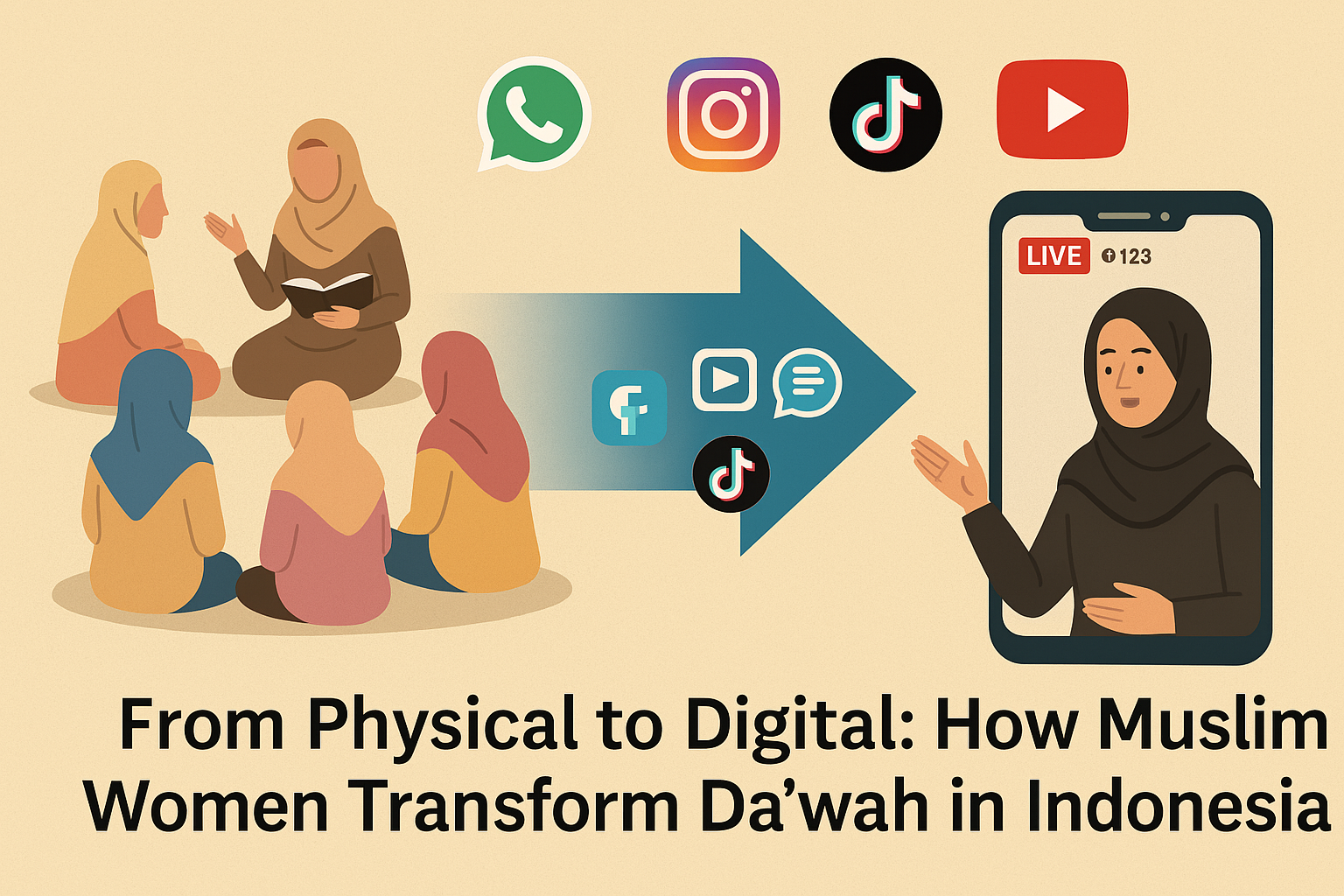Found 1 results
Article
11 April 2025Virtual Spaces of Islamic Preaching: Digital Majelis Taklim and the Changing Role of Women in Indonesia
This study investigates the changing role of women in digital da’wah and the digital transformation of Majelis Taklim (Islamic study groups) in Indonesia. As digital platforms like YouTube, Instagram, WhatsApp, Telegram, and TikTok become more widely used, this study explores how women negotiate power, shape religious discourse, and interact with audiences online. The study employs a qualitative approach using digital ethnography and critical discourse analysis (CDA) to examine the interactions and narratives shaping women’s roles in digital da’wah. Data were collected through digital observations, in-depth interviews with female preachers (ustazah), moderators, and active participants, and content analysis of Majelis Taklim sessions on social media. The study applies Fairclough’s CDA to analyze power relations within religious discourse and Van Dijk’s Critical Discourse Studies (CDS) to examine how digital da’wah reconstructs female religious authority. The results reveal a shift in women’s roles from passive participants to active producers of religious discourse. While digitalization provides broader access and participation opportunities, female preachers still face challenges in establishing religious authority, particularly in male-dominated Islamic discourses. The study finds that key themes in women-led da’wah include Islamic parenting, hijrah (religious transformation), Islamic economy, and women’s roles in Islam. Digital platforms do provide female scholars more prominence, but they also perpetuate patriarchal interpretations of religious norms. By combining digital ethnography, critical discourse analysis, and religious studies, this work adds to the conversation on Islam, gender, and digital religious practices. It shows how digital media influences women’s involvement in da’wah by presenting opportunities and limitations. Unlike other studies concentrating on male religious authority in digital da’wah, this research offers a thorough, empirical, and theoretical examination of how women manage religious influence and legitimacy online. The findings have implications for developing inclusive, digital-based Islamic education and policymaking on religious discourse in the digital era.
